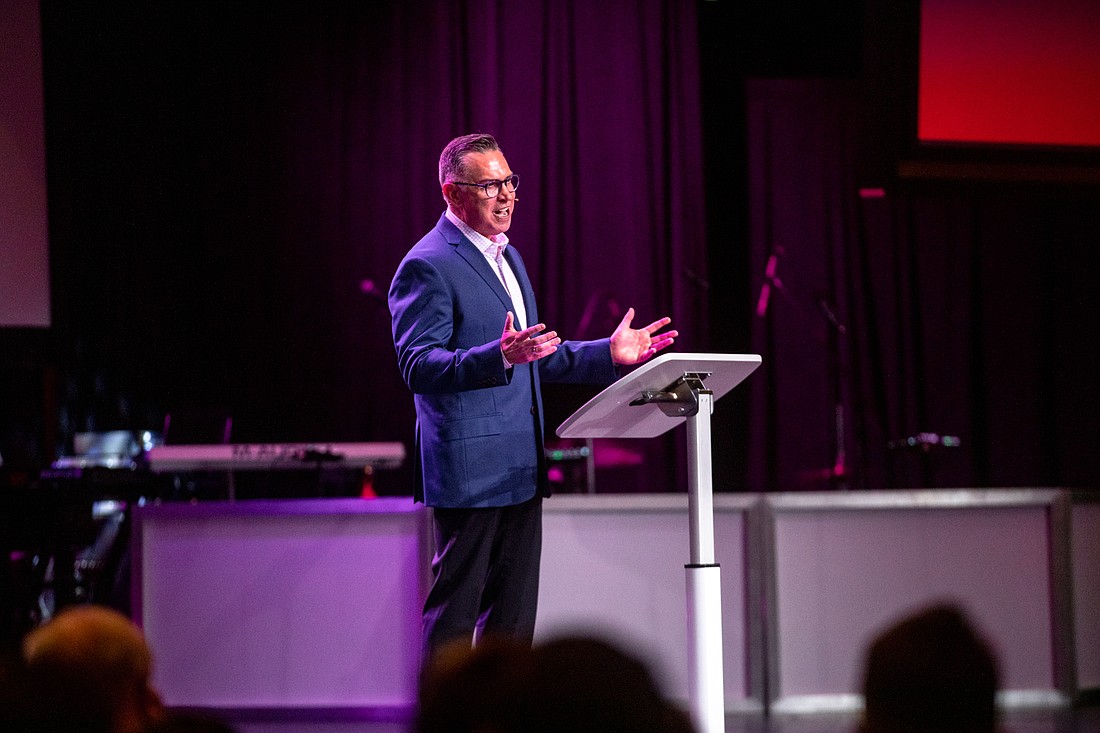As a candidate for president of Southeastern University in 2011, Kent Ingle was asked what his vision was for the private Christian liberal arts university in Lakeland.
An acknowledged leadership and turnaround expert who boosted Assemblies of God congregations in Los Angeles and Elgin, Ill., and enrollment at Northwest University’s College of Ministry in Kirkland, Wash., SEU trustees undoubtedly expected to hear a detailed plan.
That’s not what they got.
“I don’t know,” Ingle responded. “You never know the potential of something until you know the people.”
'Try to understand where people are coming from. What are their needs? How can I serve them? Center leadership on those around you.' Kent Ingle, Southeastern University
To do that, he vowed to launch “the largest listening exercise the university has ever initiated.”
Ingle got the job. And he’s been listening ever since, learning “affordability, accessibility, innovation” are students’ biggest priorities. His listening-tour experiences at the school are also a guide for any business leader who seeks to regularly deliver surprise and delight results for customers. “We’ve been very intentional in tackling these issues,” he says, adding those traits are key to making any school a university of impact. “That’s why we have grown so much.”
Since Ingle became SEU’s 15th president some eight years ago, enrollment has climbed more than 215%, from 2,546 to 8,759 students. “We’ll be pushing 10,000 students this fall,” he says.
During Ingle’s tenure, SEU has added nine sports — including a football team that won three conference titles in its first four years — and created a dozen new academic platforms to now offer 55 bachelor's, 16 master's and two doctoral degrees.
SEU’s Lakeland campus, also under Ingle, has undergone a two-phase, multimillion dollar upgrade, adding a 3,500-seat football stadium; 27,000-square-foot College of Natural & Health Sciences Building; 32,000-square-foot Welcome Center; 120,000-square-foot Live/Learn Building; and an eight-lane NCAA track-and-field complex.
But perhaps Ingle’s most noteworthy achievement is growing SEU beyond Lakeland in creating six regional campuses and more than 80 extensions, expanding the school to 112 sites across 29 states “from Hawaii to the East Coast,” including 20 in Florida.
“The future of higher education is adaptable, outreach-based programs that are cost-effective and provide skills, degree programs that fill a need,” Ingle says.
In prospecting for extension sites, “I asked, ‘What is the educational need in your community?’ Our goal is to give them access in their own communities at one-third the cost,” he says. “Literally, students can attend at one-third of the cost and more graduate with less debt.”
“Accessibility plus affordability” is matched with innovation, Ingle says. “Creating a school of coding, for instance. Get a degree or a certificate.”
Ingle, 56, a married father of three adopted children, was raised in California and is a former NBC and CBS sports anchor. He began a decade stint as a TV sports reporter at 18 before earning a master's in theological studies, a doctorate in ministry and moving into higher education and pastoral ministry. In addition to SEU, Ingle runs his Framework Leadership podcast, with 67,800 blog followers available through his @kentingle Twitter handle.
Leadership, he says, is learned. “Be other-oriented, people-centric. Try to understand where people are coming from,” says Ingle. “What are their needs? How can I serve them? Center leadership on those around you.”
The biggest leadership pitfall? Ego. “A few times, I didn’t take time to understand the context of the full issue,” he says. “It’s not about you — it’s about the people you serve.”






